Fayray, stylized as FAYRAY, is a female Japanese singer-songwriter and former actress. She made her debut in July 1998 with the single "Taiyō no Gravity". She grew up in the United States and speaks English.

FBI Special agent Jeffrey Frank Spender is a fictional character in the American Fox television series The X-Files, a science fiction show about a government conspiracy to hide or deny the truth of alien existence. Spender was in control of the X-Files office after Fox Mulder's and Dana Scully's forced leaves in "The Beginning". The X-Files office is concerned with cases with particularly mysterious or possibly supernatural circumstances that were left unsolved and shelved by the FBI. Portrayed by Canadian actor Chris Owens, Spender was a recurring character during the fifth and sixth seasons, before returning for the ninth season of The X-Files in a guest role. He returned for the eleventh season of the show.

"Big Spender" is a song written by Cy Coleman and Dorothy Fields for the musical Sweet Charity, first performed in 1966. Peggy Lee was the first artist to record the song for her album of the same name also that year. It is sung, in the musical, by the dance hostess girls; it was choreographed by Bob Fosse for the Broadway musical and the 1969 film. It is set to the beat of a striptease as the girls taunt the customers.

"Daydream Café" is Fayray's 4th single. It was released on May 12, 1999 and peaked at #41. The song was used as the ending theme for the TV program "Ninkimono de Yukou!".
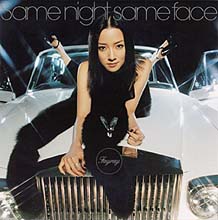
"Same night, same face" is Fayray's 5th single and first re-cut single. It was released on October 14, 1999 and peaked at #48. The song was used as the image song for the PlayStation Gamesoft "ZILL 'OLL" as well as the ending theme for the TV program "Ninkimono de Yukou!". "No, never" was used as the ending theme for the TV program "Uhhhya~!! Hanasaka London Boots".

"Tears" is Fayray's 7th single. It was released on July 26, 2000 and peaked at #11 in the charts. The song was used as the theme song for the Japanese TV drama "Friends". "Tears" is Fayray's best selling single to date.

"Remember" is Fayray's 11th single. It was released on February 20, 2002 and peaked at #52. It was used as the image song for the TV program "20th Anniversary 2002 Yokohama Kokusai Shoujo Ekiden". The coupling is a cover of Daryl Hall & John Oates's "Private Eyes".
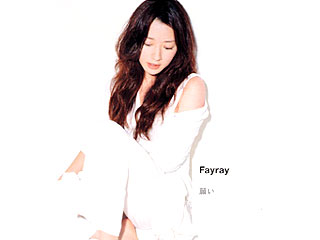
"Negai" is Fayray's 15th single and first on the R&C Japan record label. It was released on February 18, 2004 and peaked at #22 on the charts. The song was used as the theme song for the TV drama "Ranpo R". The coupling is a cover of Dusty Springfield's "Spooky".
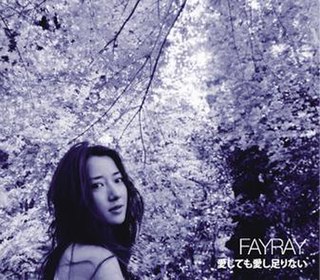
"Aishite mo Aishitarinai" is Fayray's 17th single. It was released on May 26, 2004, and peaked at #46. It was used as insert song for the TV drama "At Home Dad". The coupling is a cover of "My Funny Valentine".

Craving is Japanese singer songwriter Fayray's first studio album, released on May 26, 1999. The album was produced by Daisuke Asakura.
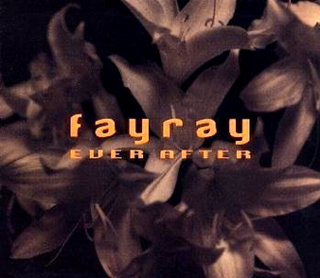
Ever After is Japanese singer songwriter Fayray's second studio and first self-produced album. The album was released on September 6, 2000.

Genuine is Japanese singer songwriter Fayray's third studio album and last under the Antinos Records label. The album was released on July 18, 2001.

Shiroi Hana is Japanese singer songwriter Fayray's fourth studio album and sole under the Avex Trax label. The album was released on February 19, 2003.

Hourglass is Japanese singer songwriter Fayray's fifth studio album and first under the R and C label. The album was released on October 27, 2004.
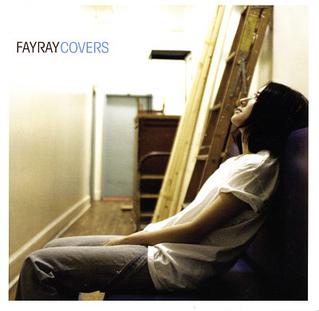
Covers is Japanese singer songwriter Fayray's sixth studio album and her only cover album, released June 8, 2005.
NorthSouth Productions is a television production company in the United States that was founded by Charlie DeBevoise and Mark Hickman in 2000. NorthSouth creates and produces original programming for a variety of broadcast and cable networks including Peacock, HGTV, Discovery, TLC, History, A&E, MTV, VH1, SyFy, OWN: Oprah Winfrey Network, TruTV, WE tv, Discovery, Food Network, Lifetime, and the Sundance Channel. Their production credits include documentaries, reality television, travel series, and sports entertainment. The company has offices in New York City and Knoxville, Tennessee.
Big Spender is a United States reality television series on the A&E Network. Host Larry Winget visits people in financial crisis, then advises them how to solve the problems and avoid repeating the same mistakes. The show is produced by NorthSouth Productions and premiered in July 2006.
People would rather talk about their sex life on TV than their finances, because there's no defense for the fact that you're just an idiot.

Sir Stephen Harold Spender was an English poet, novelist and essayist whose work concentrated on themes of social injustice and the class struggle. He was appointed Poet Laureate Consultant in Poetry by the United States Library of Congress in 1965.
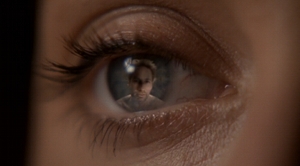
"William" is the sixteenth episode of the ninth season of the American science fiction television series The X-Files, which originally aired on the Fox network on April 28, 2002. The teleplay of the episode was written by series creator Chris Carter, from a story by former series star David Duchovny, Carter, and executive producer Frank Spotnitz; the entry was directed by Duchovny. "William" helps to explore the series' overarching mythology. The episode received a Nielsen household rating of 5.8, being watched by 6.1 million households and 9.3 million viewers upon its initial broadcast. It received mixed reviews from television critics, many of whom were unhappy with the episode's conclusion.
The discography of Japanese singer songwriter Fayray consists of eight studio albums, twenty-two singles and four video albums.
















